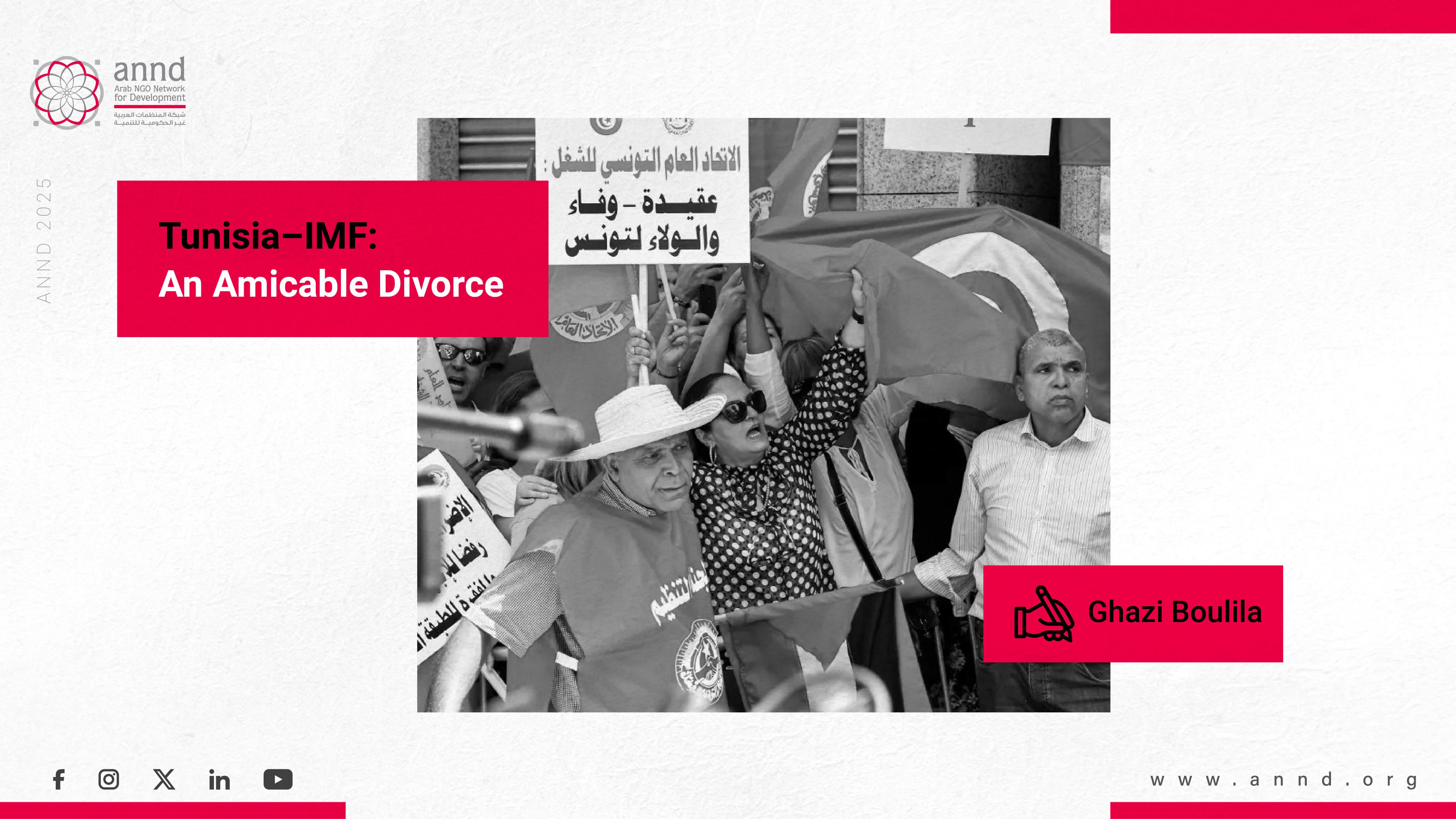
Tunisia–IMF: An Amicable Divorce - Ghazi Boulila
Tunisia recently
ended its relationship with the International Monetary Fund (IMF) after a long
period of cooperation during which the country’s economy truly benefited from
technical assistance and substantial funding estimated at $4.4 billion, of
which 87% was obtained between 2013 and 2020.
The IMF supported
Tunisia during some of its most difficult economic and social crises. In 1970,
it helped the country recover from the failed cooperative experiment of the
1960s. In 1984, it contributed to a social program to overcome the "bread
uprising." In 1990, it recommended a “structural adjustment program” to
modernize the economy and address public finance challenges. In 2013, following
the 2011 revolution, the IMF was called upon to respond to the deteriorating
budget situation resulting from increased subsidies, the swelling public sector
wage bill, and rising social demands.
Despite these
recent interventions, Tunisia’s economy has failed to take off or recover from
its deep crisis. All governments since 2011 have tried to finance the budget
deficit primarily through external debt. None implemented a strategy focused on
wealth creation to boost state revenues and close the budget gap. On the
contrary, they increased state spending to buy social peace and stay in power.
These governments devoted more effort to negotiating with the IMF than to
finding genuine solutions to create wealth.
However, it is
clear that the lack of wealth creation has intensified pressure on public
finances. Today, the state’s own revenues fall far short of covering essential
expenditures (public sector wages, debt servicing), not to mention the need for
growth-generating investment spending.
Faced with this
situation, the political authorities chose a strategy of “self-reliance” and
refused the three conditions proposed by the IMF to unlock a $1.9 billion loan.
These conditions are seen by the authorities as an unacceptable intrusion into
domestic policy and as measures that would only deepen external debt without
leading to structural reforms suited to the country.
Yet, the
difficulty in accessing financing as a result of this stance not only limits
Tunisia’s access to international money markets but also affects bilateral
agreements, as many countries condition their financial support to Tunisia on
the conclusion of an IMF deal.
The three IMF
conditions rejected by the Tunisian authorities, which ultimately led to the
rupture in the relationship, are:
- Restructuring of public
enterprises: Political
authorities are skeptical of any privatization of these entities, which
they see as providers of affordable public services, especially for the
poor. Moreover, privatizing some enterprises has provoked strong reactions
from public sector unions. The Tunisian General Labour Union (UGTT), the
country’s main labor union, has long opposed privatization as a red line.
However, it has recently moderated its stance and now proposes a
case-by-case restructuring approach.
- Reducing the public
sector wage bill: The policy
of encouraging early retirement for civil servants has not significantly
reduced the wage share in the budget. On the contrary, pressure from
unemployed university graduates led the authorities to recruit around
5,000 new graduates.
- Phasing out subsidies
on basic goods and energy products: Resistance to this condition harks back to the
deadly “bread riots” of January 1984, when the government removed
subsidies on grain products, leading to steep increases in the prices of
bread, semolina, and pasta.
According to many
economists, the IMF's program was marked by passivity and did not push
successive governments to develop solutions tailored to national and
international contexts or to the geopolitical changes in the region. While it
provides temporary relief, IMF loans often lead to worsening poverty and higher
debt levels. This is mainly because the IMF tends to apply similar economic
conditions and structural adjustment plans from one country to another, without
considering local contexts and specificities.
Moreover, while
increased public spending is necessary to maintain social cohesion, it is
crucial to avoid policies that could have harmful long-term budgetary effects
and drive the country toward over-indebtedness and dependency on donors and
lending countries.
Civil society generally supports the decision to break ties with the IMF and adopt a “self-reliance” strategy—if it helps pull the economy out of the trap of excessive foreign debt, donor dependency, and low economic growth. However, it calls on political authorities to strike a balance between economic independence and the need for international support to meet the country’s economic challenges.
Disclaimer:
This article was published as part of the newsletter “IMF Policies: No Rule Fits All”. The views and opinions expressed are those of the author and do not necessarily reflect the official position of the Arab NGO Network for Development (ANND).
Recent publications

